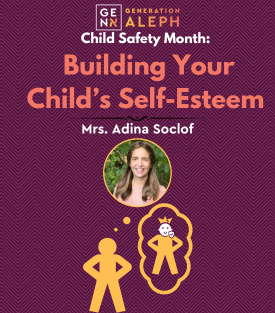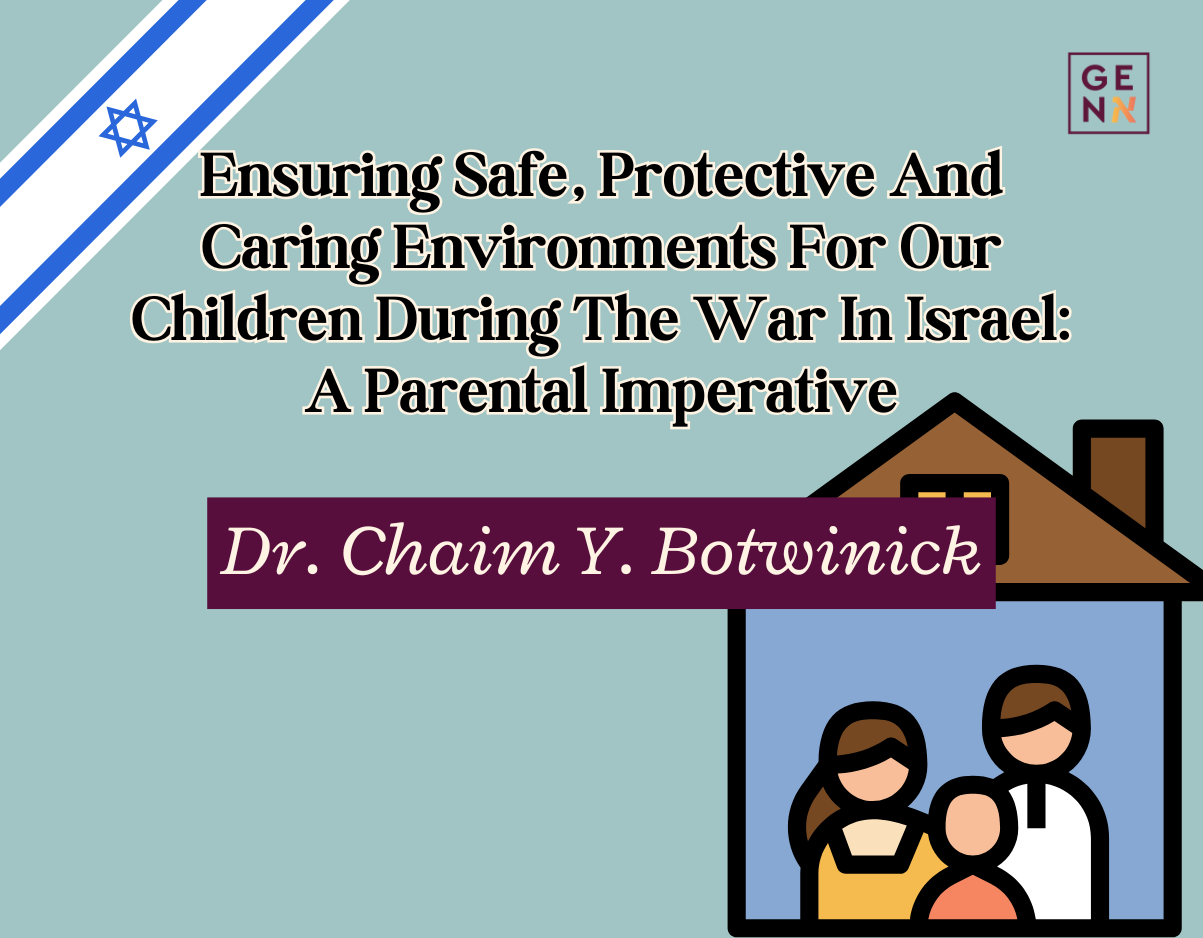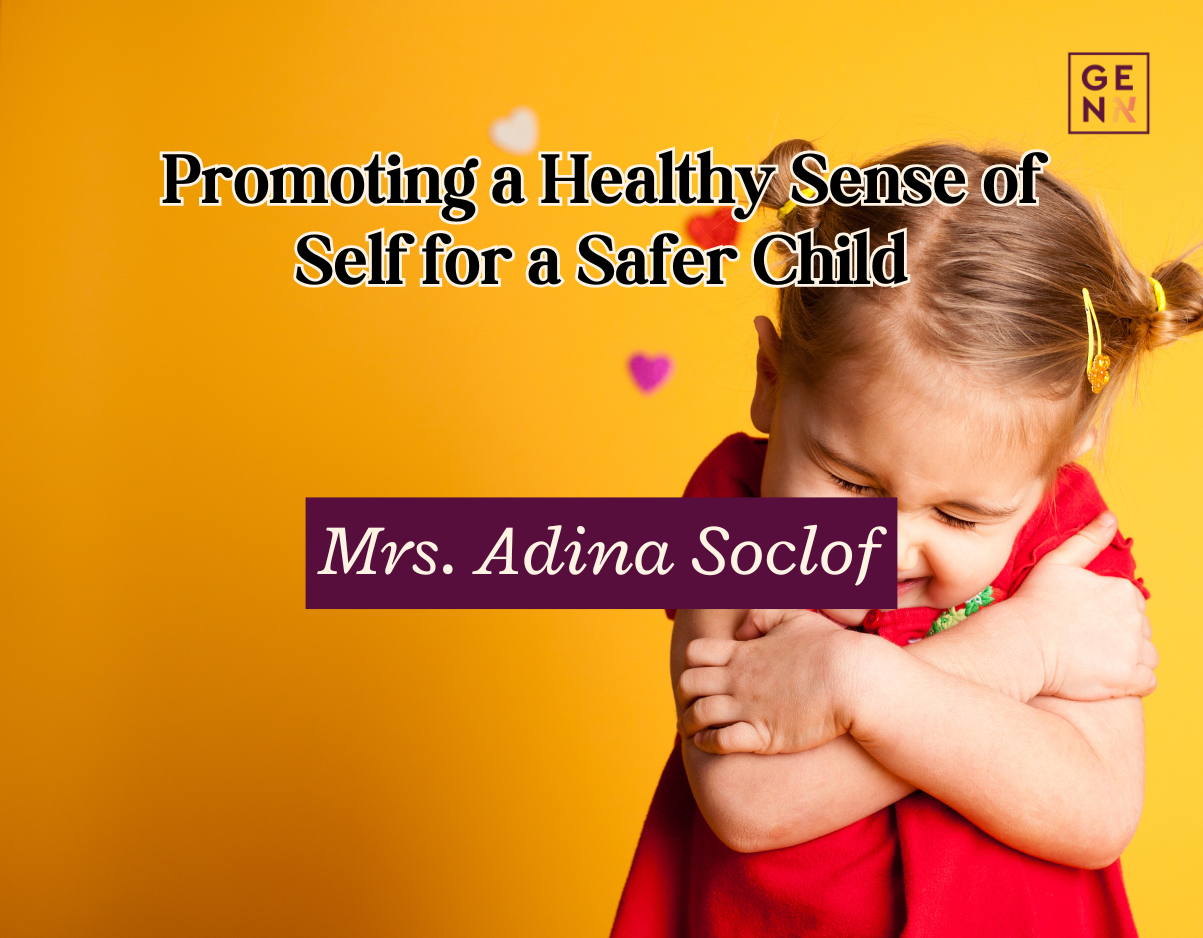It was my first day volunteering as a “safety parent” at my kids’ day school. I was standing in front of the most adorable 2nd grade girls when one raised her hand and announced — to me and 18 of her peers — that her uncle touches her in exactly the way I just described wasn’t ok.
Not one of the 20+ hours of lay leader safety training I had just gone through could have prepared me for the weight of that moment.
According to the Centers for Disease Control, about 1 in 4 girls and 1 in 13 boys in the U.S. experience child sexual abuse. And 95% of the time, it’s preventable through education. That’s because in 91% of cases, the perpetrator is someone known and trusted by the child or the child’s family.
But the Jewish People have never been beholden to predictive numbers. We always defy the odds.
I believe we can on this topic as well.
5 considerations for maintaining your child’s physical safety
There are very few absolute rules when it comes to your child’s physical safety in 2023. Instead, I’ll tell you to rely on your instinct. You know your child, your neighborhood and your parenting style best so implement only what works for you from this list of safety considerations.
1. Create a code. When your child is in need of an emergency pick up from anywhere, at any age, it’s going to take herculean efforts for them to pick up a phone in front of their friends and ask you to come get them. Create a code instead!
Let each child choose their own phrase they’ll use to communicate “Help! I’m in danger!” Encourage them to dream up both something simple to remember and a phrase that they would realistically say in front of a friend. Some ideas include:
• “I left the light on in the closet in my room.”
• “Can you check to make sure I closed your car door?”
• “What was for dinner tonight?”
I still randomly test my teenagers on their childhood codes. You never know when you’ll need it again.
2. Make the conversation ongoing. The best advice I ever got about parenting was from a therapist friend of mine who encouraged me to “start the body change/birds and bees conversation early — and have it often.”
What? She meant: start small and take the information download super slow. Let your kid know whatever you say is only a piece of a larger and more in-depth conversation that you’ll have with them many times in their life, and you’re never going to “close” the conversation so they can always approach you and ask anything and you’ll always tell them the truth.
Same goes for this physical safety convo. My kids know the door is always open on both sides. Either of us can jump into such a convo at any time. At the very least, I do this annually before sleepaway camp. This makes it so much less awkward and removes the pressure on both sides to discuss everything and anything all at once.
3. Turn the uncomfortable into something more relaxed — for everyone. No need to have these conversations while sitting across from each other at the dining room table. Give you and the kid a break and have them while you’re driving, or on a walk and you don’t have to look them in the face. Whatever makes it easier to get the memo across that:
– No one is allowed to trespass your body. Think: anything under a bathing suit.
– Trust your gut. When you feel something isn’t right, you’re usually on to something.
– An adult should never tell you not to tell your parents something.
– I will always believe you NO MATTER WHAT.
4. Don’t be embarrassed to be that parent. To get the hours of practice I needed ahead of stepping into the classroom for that safety presentation, I “paid” the kids on my block with chocolate coins (left over from Chanukah). Their only job? Listen and ask questions. It was a win-win. I got to practice in front of a group of kids who snickered and asked every question under the sun for another chocolate and then I became a trusted adult for them if they’re ever in a questionable situation.
5. Shabbos. Whether at shul, the local park, walking to and from play dates, at a friend’s house, a stranger’s house, or a Shabbos meal, Shabbos can unfortunately be the Wild West when it comes to personal safety for many children. I have spoken to adult survivors whose lives changed forever at a Shabbos playdate with a friend’s father, or at shul Shabbos morning with the “Candyman.” Of course, know that these scenarios are by far the exception, not the rule. But, generally speaking, your child’s freedom on Shabbos should be directly proportionate to the height of your antenna for their safety.
It takes a village
Back in that 2nd grade classroom, our student got the help she needed because of the qualified and dedicated mental health professionals we have working inside and outside of our classrooms.
Rabbeim like Rabbi Yaakov Horwitz and local community-wide efforts like special Beis Dinim that communities have created to keep our children safe, are all leading the way in bringing these topics to the forefront for the benefit and safety of all.
May Hashem protect us and our children from things we know about and those we don’t and may the rest of this summer and the upcoming school year be one of bracha, hatzlacha and safety for all!
Submit your questions
"*" indicates required fields










